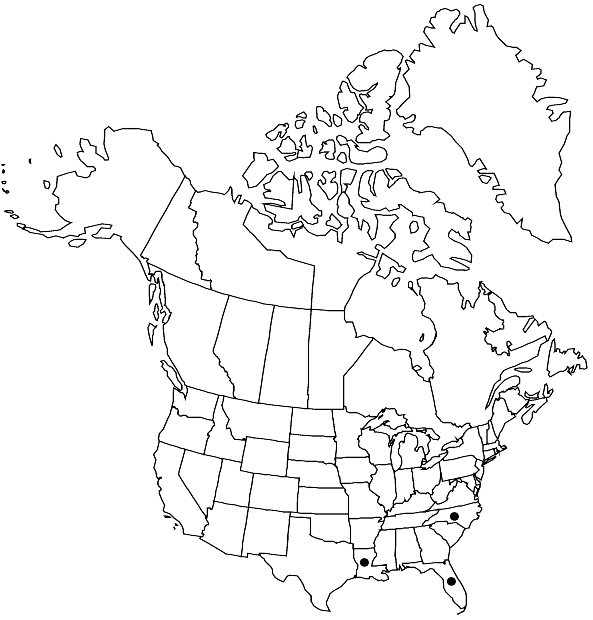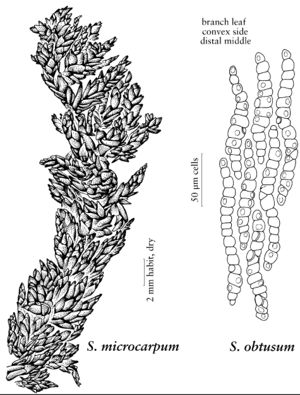Difference between revisions of "Sphagnum microcarpum"
Hedwigia 47: 94. 1907,.
FNA>Volume Importer |
imported>Volume Importer |
||
| (2 intermediate revisions by 2 users not shown) | |||
| Line 48: | Line 48: | ||
|publication year= | |publication year= | ||
|special status= | |special status= | ||
| − | |source xml=https:// | + | |source xml=https://bitbucket.org/aafc-mbb/fna-data-curation/src/2e0870ddd59836b60bcf96646a41e87ea5a5943a/coarse_grained_fna_xml/V27/V27_72.xml |
|genus=Sphagnum | |genus=Sphagnum | ||
|section=Sphagnum sect. Subsecunda | |section=Sphagnum sect. Subsecunda | ||
Latest revision as of 21:28, 5 November 2020
Plants small; green to light green, capitulum indistinct. Stems green to dark brown; superficial cortex of nearly undifferentiated. Stem leaves isophyllous, ovate to ovate-lanceolate, 2.2–2.8 mm; apex rounded; hyaline cells nonseptate, convex surface with 6–12 pores per cell along commissures, concave surface aporose. Branches straight and short. Branch fascicles nearly all with 2 spreading branch only. Branch leaves ovate, 1.3–1.7 mm; hyaline cells on convex surface with 8–18 elliptic pores more than 8 µm, concave surface aporose. Sexual condition unknown. Capsule not seen. Spores not seen.
Habitat: Ruderal sites such as dessication-prone depressions, ditches, tire tracks, and natural depressions among tussocks
Elevation: low elevations
Distribution

Fla., La., N.C.
Discussion
Sporophytes are rare in Sphagnum microcarpum, which grows over bare soil in a manner similar to that of S. cyclophyllum and S. fitzgeraldii. It is now recognized as separate from S. cyclophyllum, with which it has been treated as synonymous in the past. Besides the microscopic differences, S. microcarpum has a compact upright growth form quite unlike that of typical S. cyclophyllum. Sphagnum microcarpum is nearly always branched whereas S. cyclophyllum is nearly always simplex.
The name Sphagnum mobilense Warnstorf also has been applied to this taxon.
Selected References
None.
